Revision Top Tips
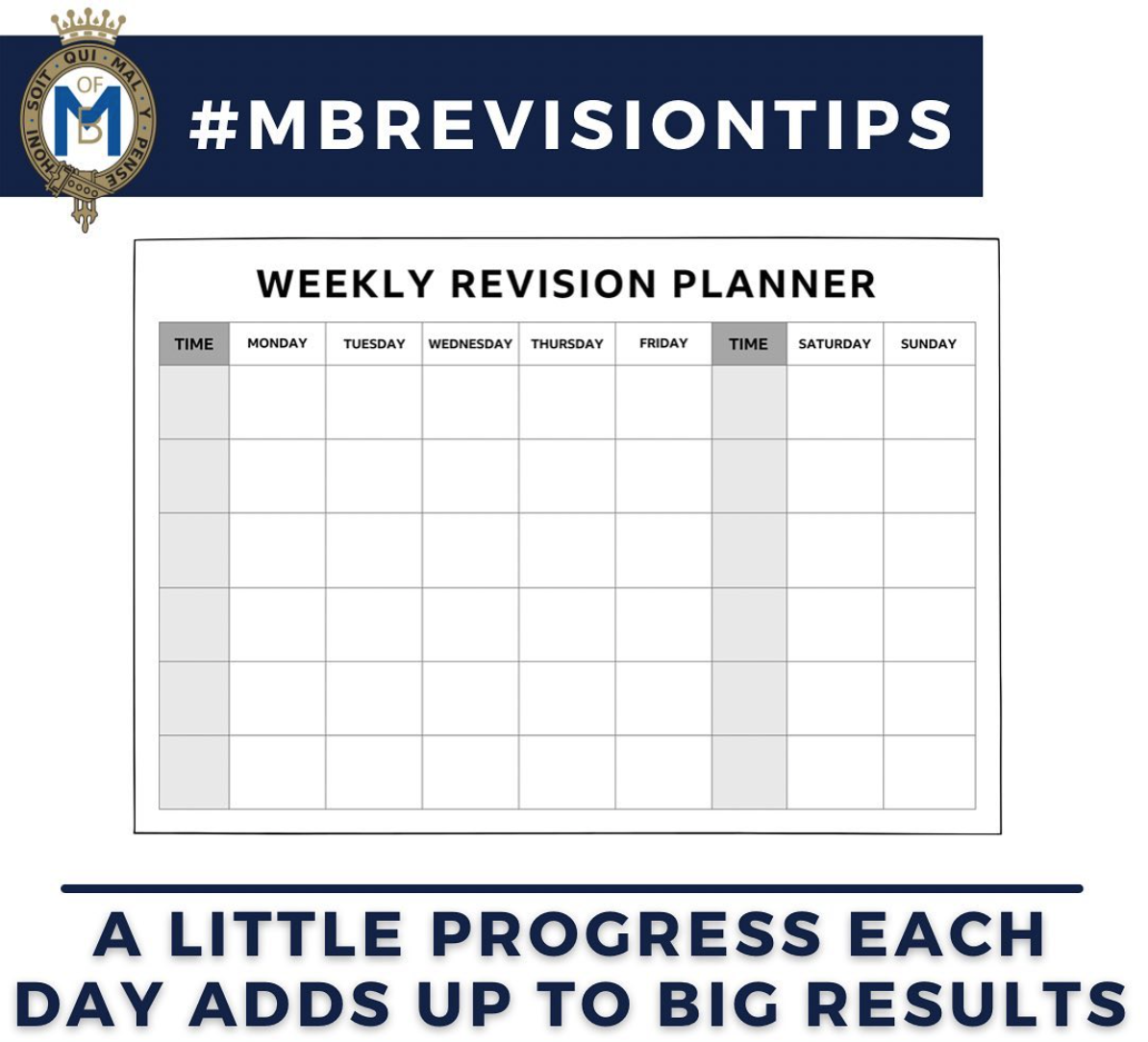
M A K E A P L A N 🗒
Use a planner, like the one pictured, to help spread out the subjects you need to study. Avoid large blocks of one subject, instead keep a mixture of subjects. E.g. Monday morning = Biology, Monday afternoon = History Paper 1, etc..
It is really important to schedule down time and other commitments. Most importantly - stick to your plan to make sure you cover everything you need to!
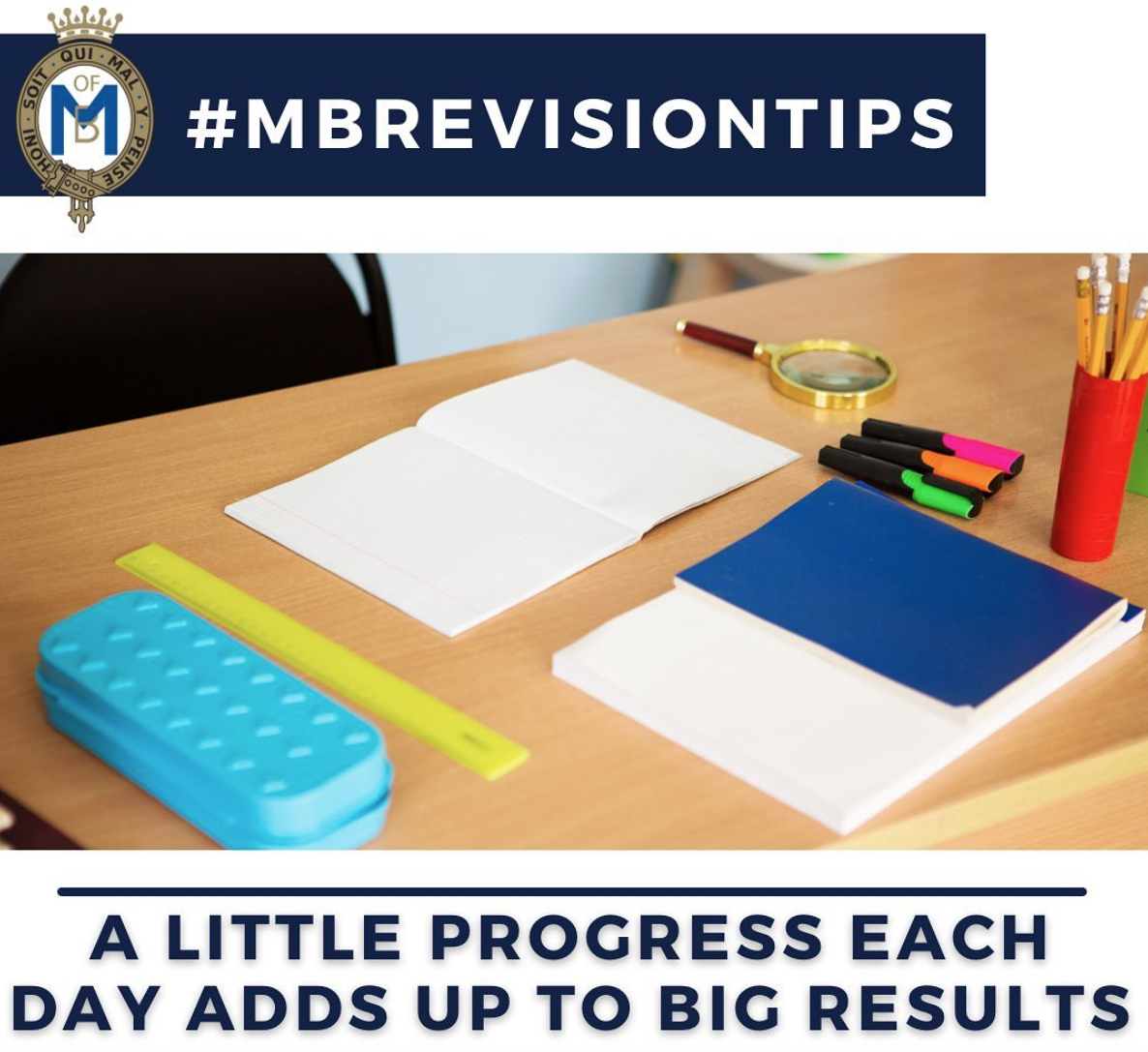
S T U D Y A R E A
It is tempting to lie on our bed to revise (it’s much comfier!) but it is better to revise at a table/desk with all the things you need around you. Your bed is somewhere to relax and go to sleep - you don’t want to be thinking about Shakespeare’s use of caesura, surds or Seneca Learn modules as you’re drifting off to sleep!
Some useful things to have when you revise are:
🗒notebook
🗂revision cards
📚your exercise books/textbooks
🖍highlighters and different colour pens
🍌 a healthy snack (or two!) 🍏🍇🫐🍓
Make sure your desk/table is distraction free…
📱❌
🎧❌
📺❌
🤫🤫🤫🤫🤫🤫🤫🤫🤫🤫
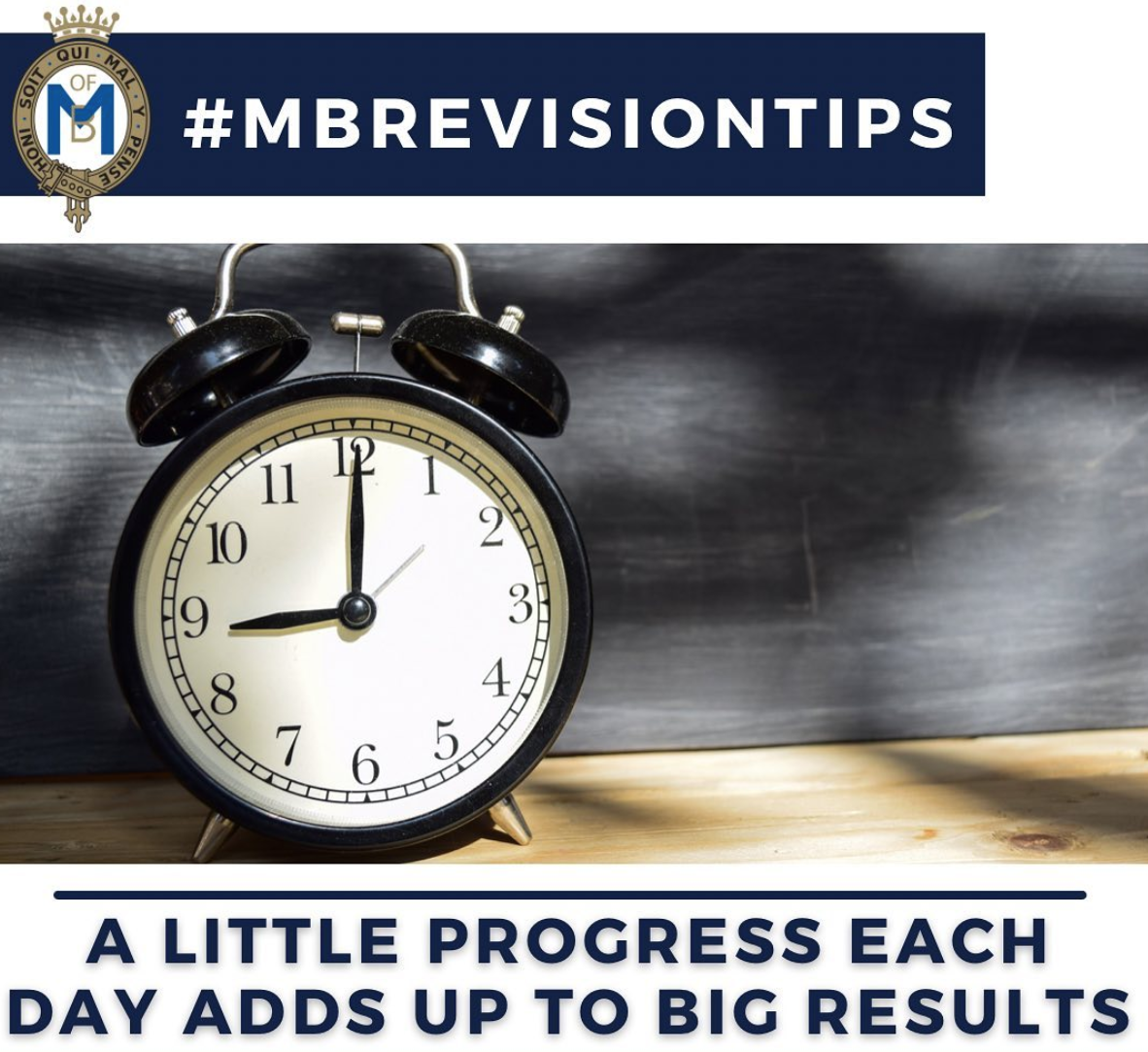
G E T S T A R T E D
We know a lie in during the holidays is tempting but making a start on your revision by 9am makes all the difference.
Getting your revision done earlier in the day is great as it gives you a positive feeling for the rest of your day knowing what you have already achieved. Our natural instinct is to avoid the thing we least want to do but it is important to be resilient and make a start - that is always the hardest bit! 💪💪💪
We are also more productive in the morning and able to remember more information!
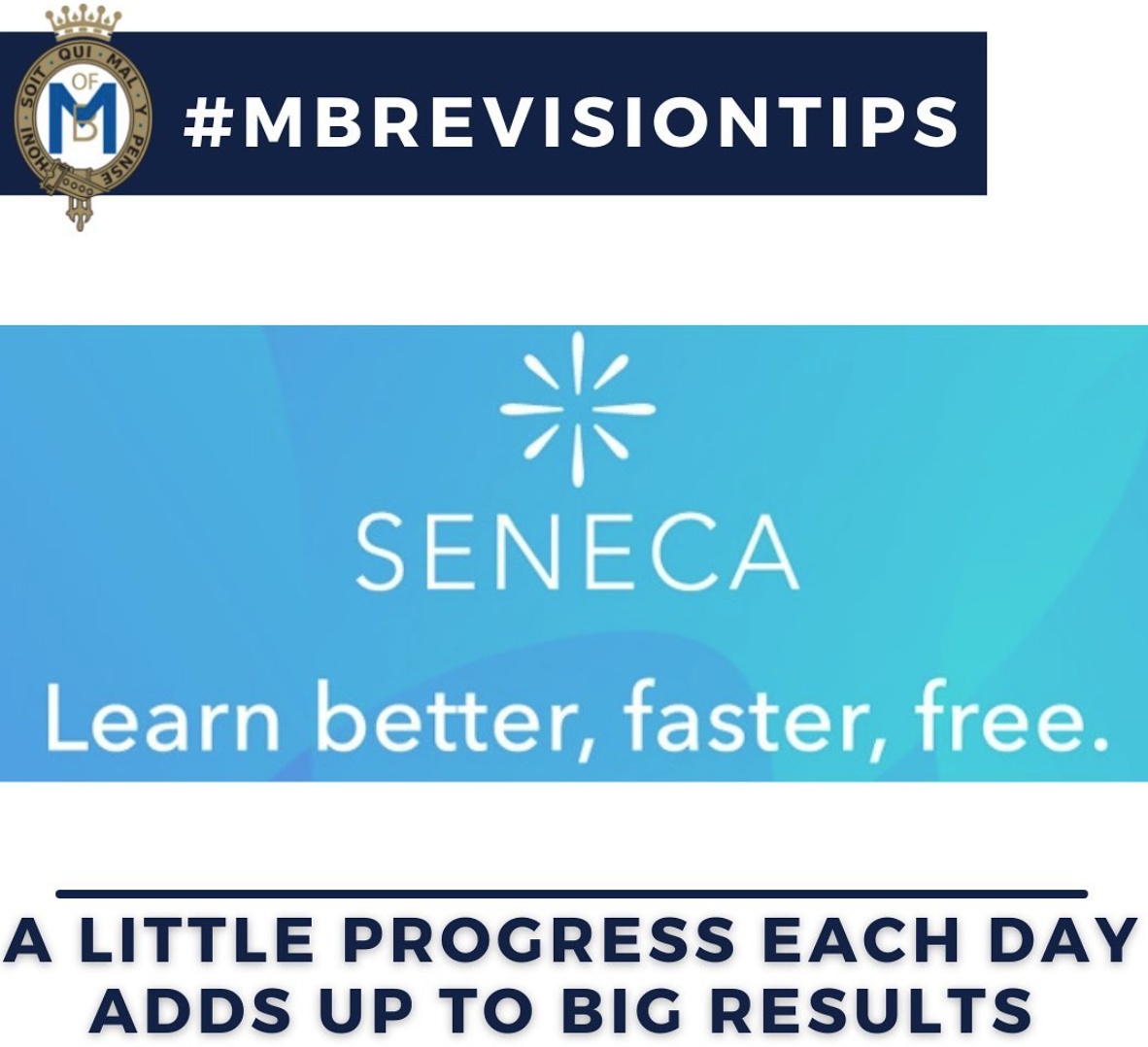
Q U I C K R E V I S I O N
In a rush? Want a quick quiz to test your learning so far? Seneca has lots of free courses for GCSE students where you can learn and test yourself on a variety of topics. Make sure you know your exam boards for each subject. Great for revision on the go or if you fancy a quick quiz on your phone whilst stuck in the car, in a queue at the shops or if you have 10 minutes to spare.
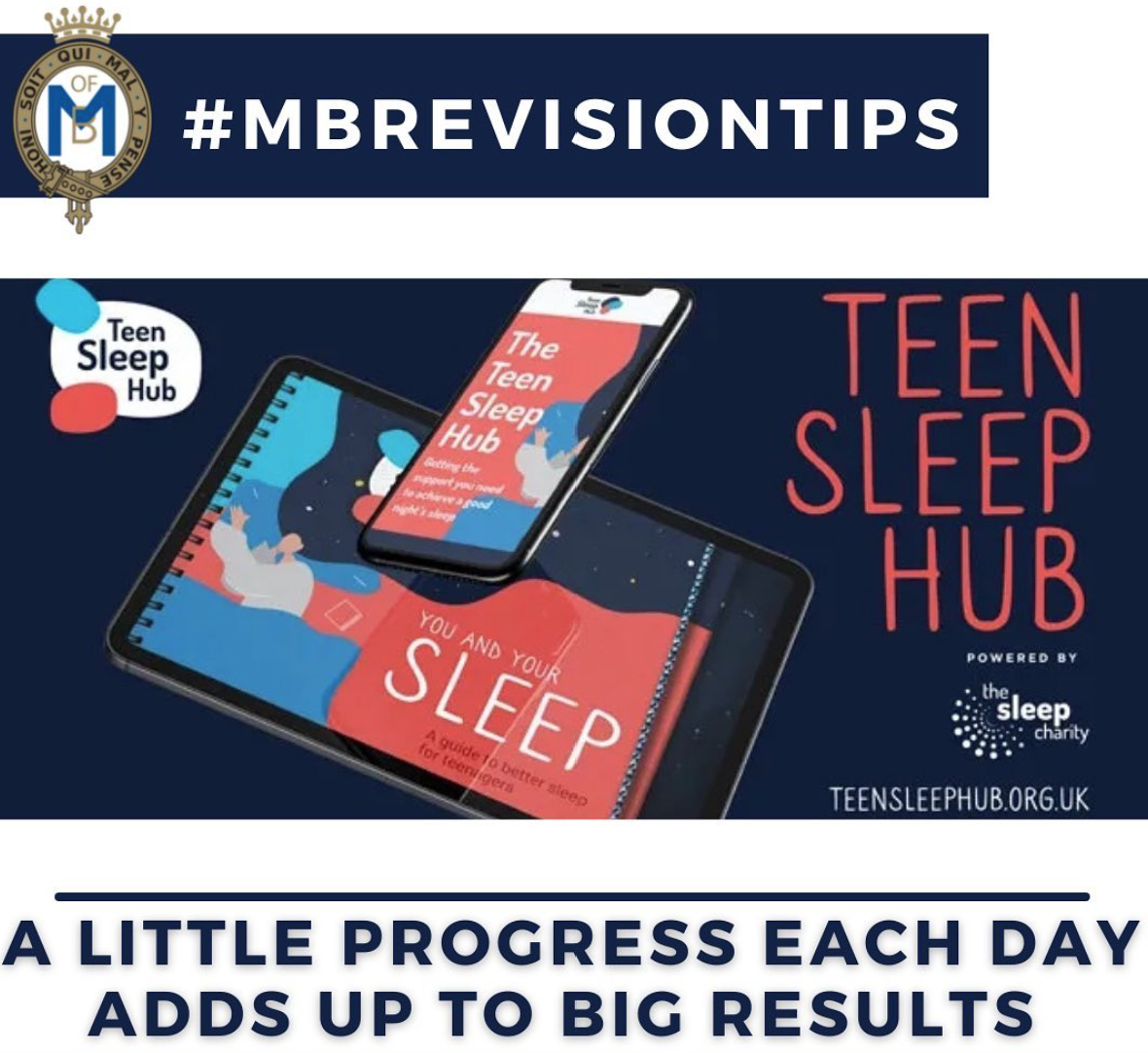
💤💤 S L E E P 💤💤
Sleep is always important but even more so when you are revising. A good night’s sleep helps aid memory retention and has health benefits that include helping us to look and feel better.
The Teen Sleep Hub have lots of excellent resources and advice to help you get a better night of sleep - all for free!
Revising and staying motivated to keep going is MUCH easier if you have had lots of good quality sleep.
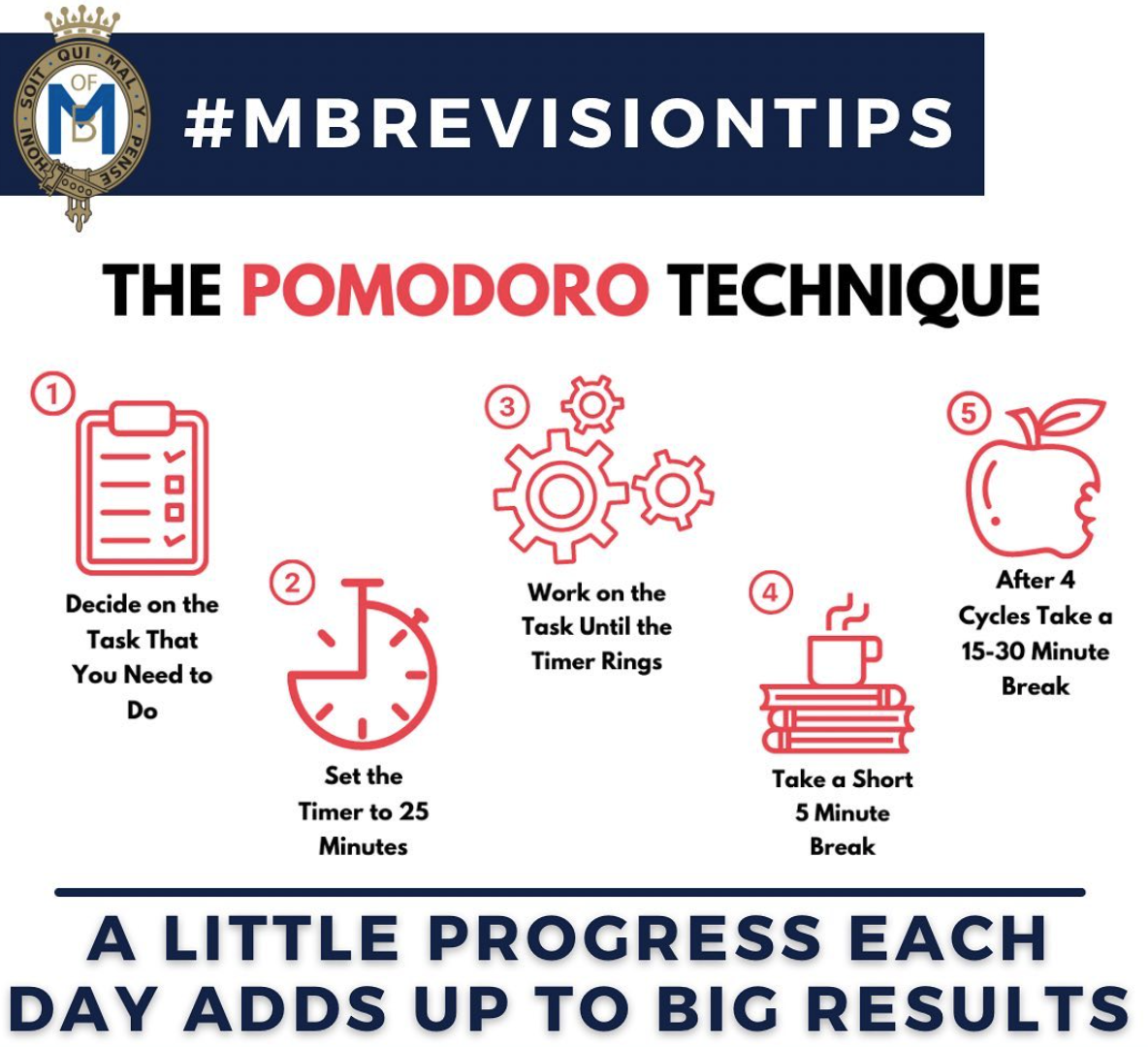
E F F E C T I V E B R E A K S
The Pomodoro technique is a way of chunking up your work to help you stay effective and productive when you study.
📖📚Study for 25 minutes (set a timer).
☕️🚶♀️Take a five minute break (set the timer again!).
🔁🔁Repeat
⏳⏳After four cycles, take a longer 15-30 minute break.
This is a great way to maintain productivity and focus when revising.
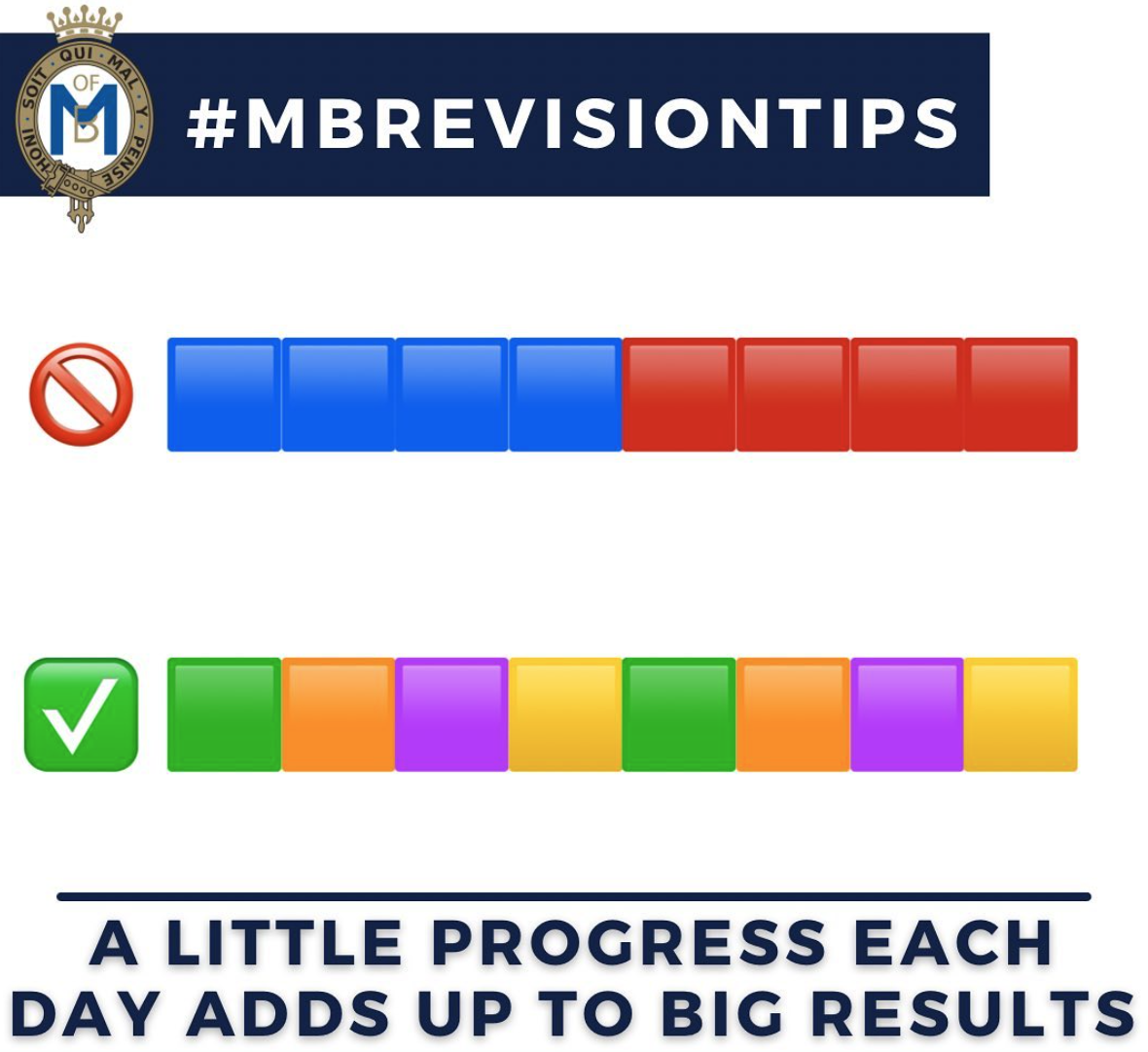
I N T E R L E A V I N G
Imagine that each of these squares is 20 minutes of study time. Each colour represents a different topic/subject.
The top row is called block learning, where you spend a lot of time on one subject - we need to avoid this!
The second row is called interleaving, where you switch to a new topic every 20-30 minutes. This method of revision is scientifically proven to be more effective, it helps to:
✅ Improve your long term memory
✅ Add variety to your revision schedule
✅ Keep you interested for longer
✅ Remember more!
Y10 and Y11 students can learn more about interleaving and how it works on GCSEPod, just search “interleaving” or follow this link.
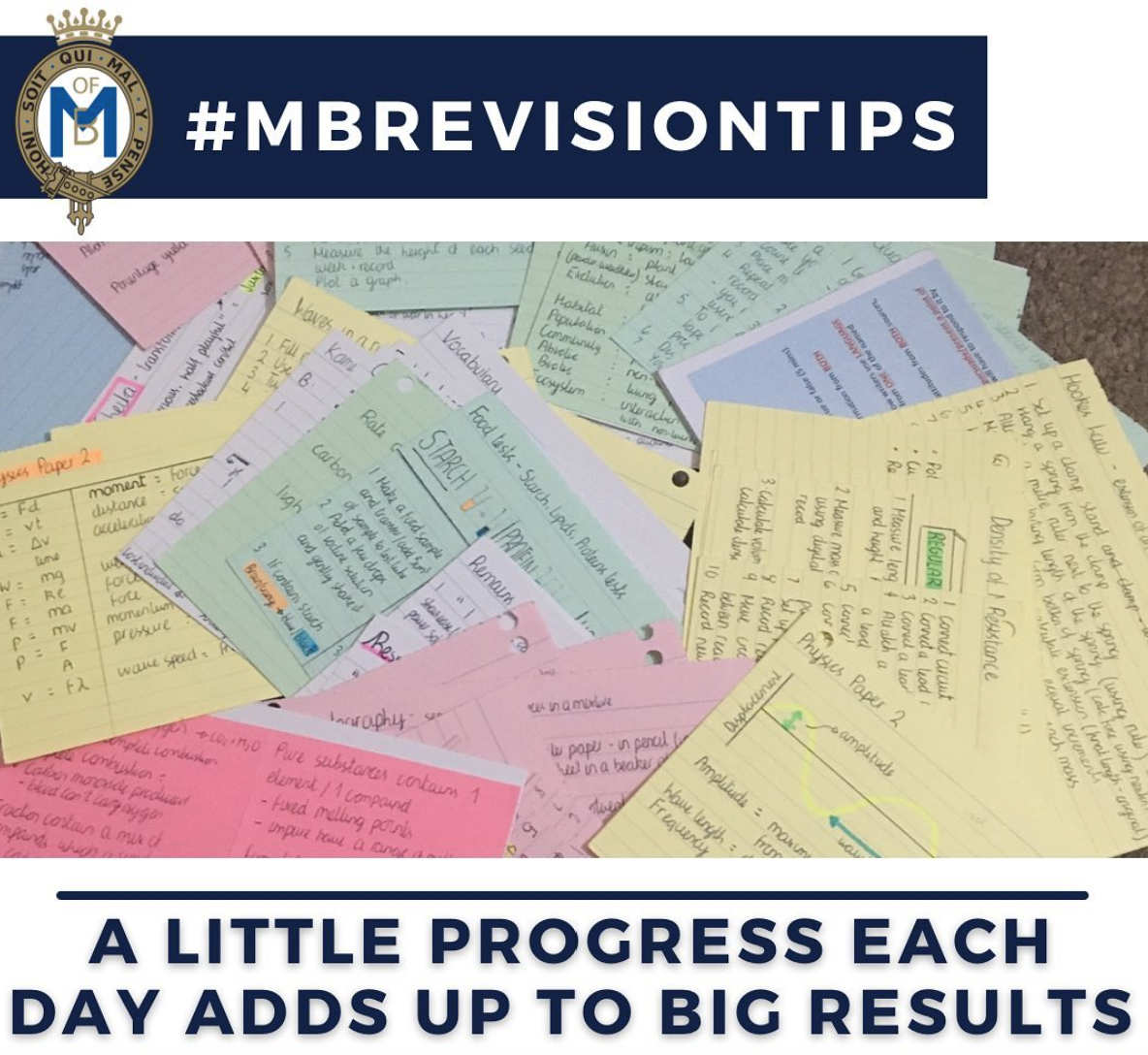
U S I N G F L A S H C A R D S
So you’ve made lots of lovely flash cards, what next? Making them is just the first step…
You should use flashcards to help you self test. Can you recall all the information on the flashcard? Can you recreate the flashcard from memory?
The Leitner System is all about the frequency with which you revisit your revision cards for self testing. In summary, you must:
1️⃣ Create three boxes or files.
2️⃣ Label the boxes as follows: everyday, Tuesday and Thursday, Saturday (you can change the days!)
3️⃣ Test how well you recall the information on each card, if it is really difficult put it in the everyday pile, if it is tricky put it in the twice a week pile and if it is relatively easy put it in the once a week pile.
You now have a schedule of how often to revisit your revision cards. As they get easier, move the cards around into the different sections and introduce more cards as you are ready.
You can learn more about the Leitner System in this 3 minute YouTube video.
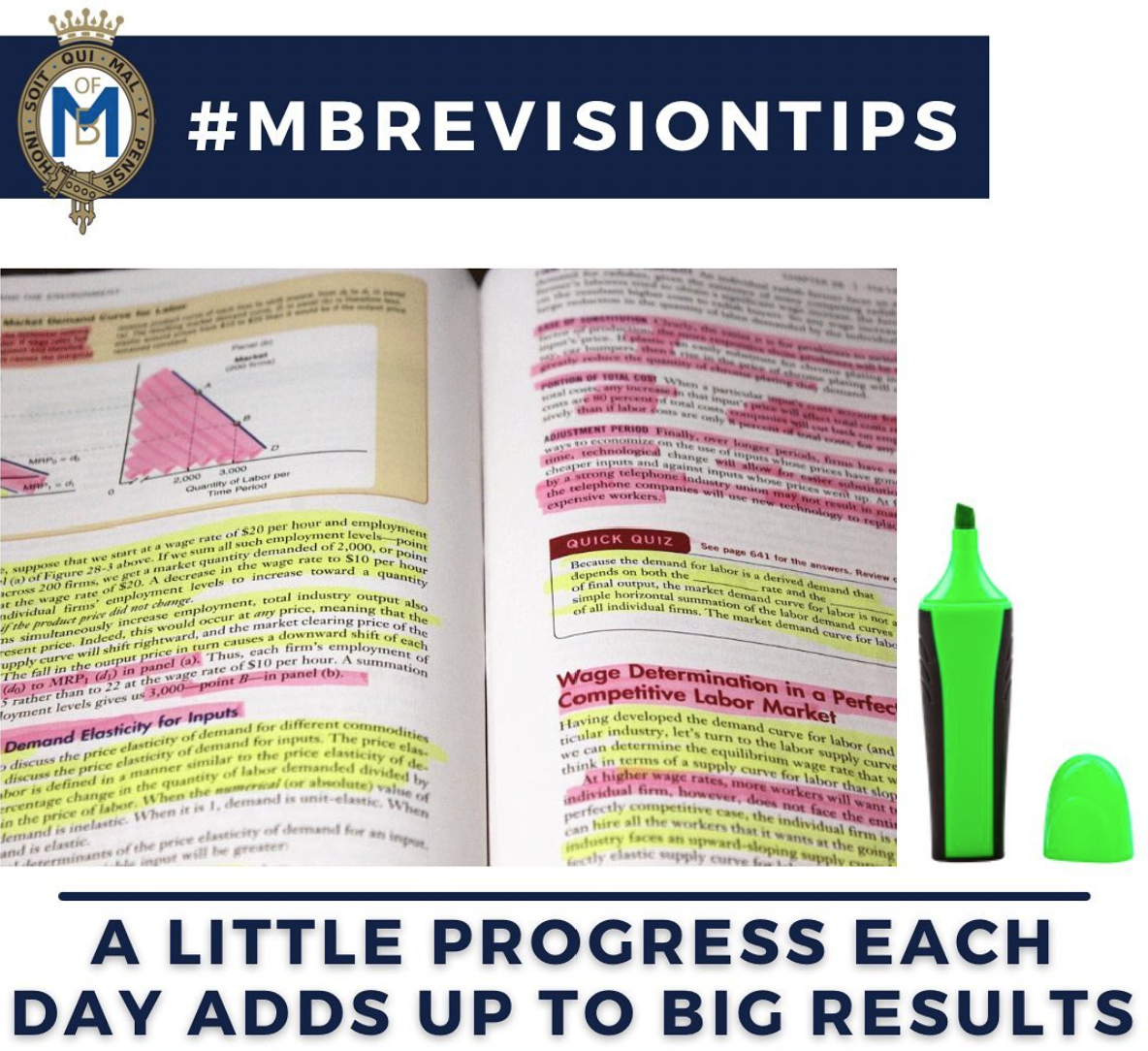
H I G H L I G H T E R S
Highlighters are an excellent tool but can sometimes be overused and then it is ineffective.
With highlighters… less is more!
You should use a highlighter to:
✅highlight keywords that are important in the paragraph
✅ create a colour code, e.g. keywords in one colour, statistics/quotations in a second colour, etc.
✅ help only the most important things stand out.
REMEMBER: just highlighting something doesn’t help you remember it, it only helps information stand out. Get someone to test you, make flash cards and explain what you are revising out loud to someone else.
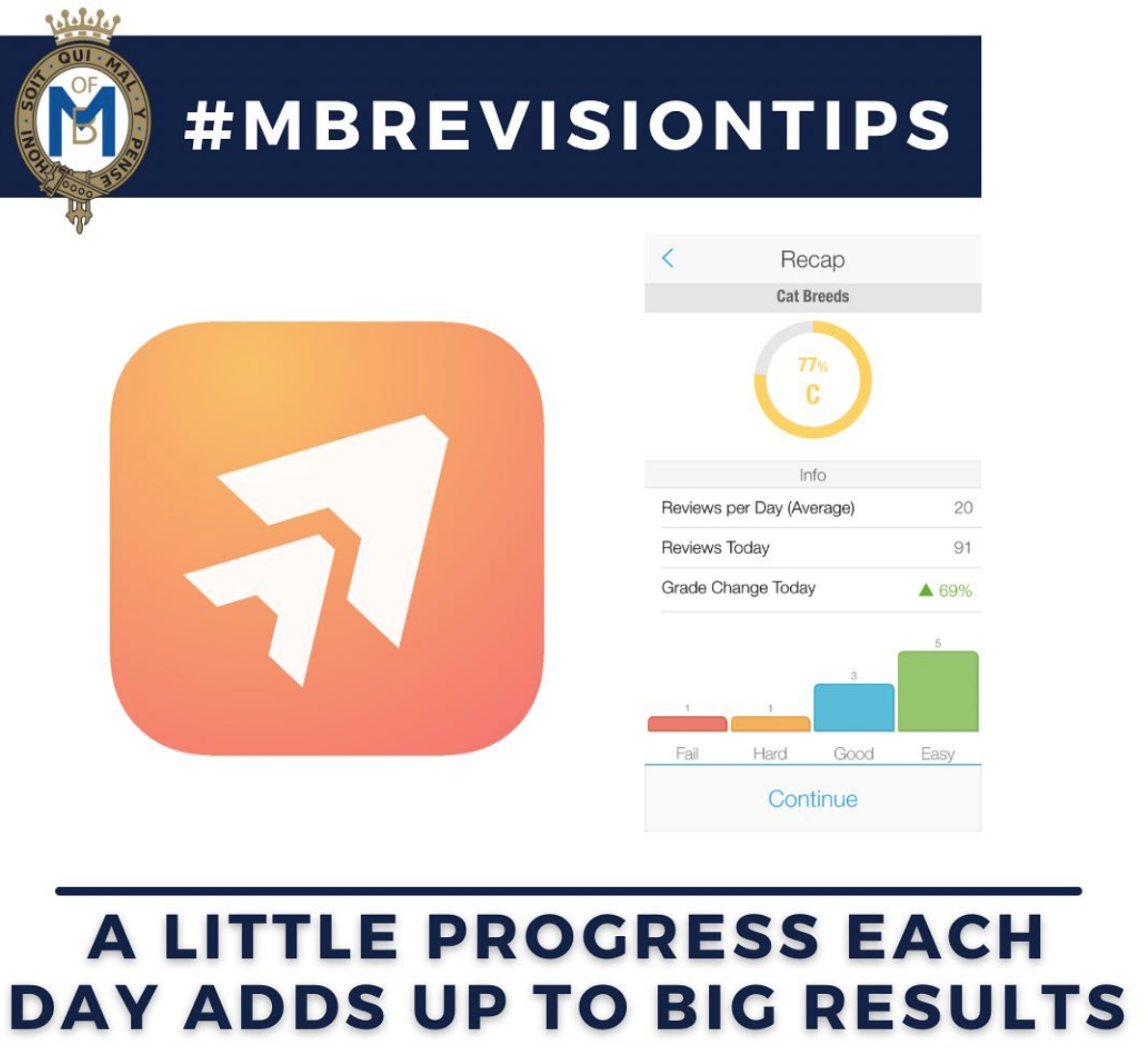
D I G I T A L F L A S H C A R D S
To help you revise on the go, why not download AnkiApp - a flashcard app where you can make your own flashcards. You can then use the app to test yourself (an effective form of revision) and its clever algorithms will work out which flashcards you need to revise more and will space and interleave different topics for you.
The app also tracks your progress to help you stay motivated!
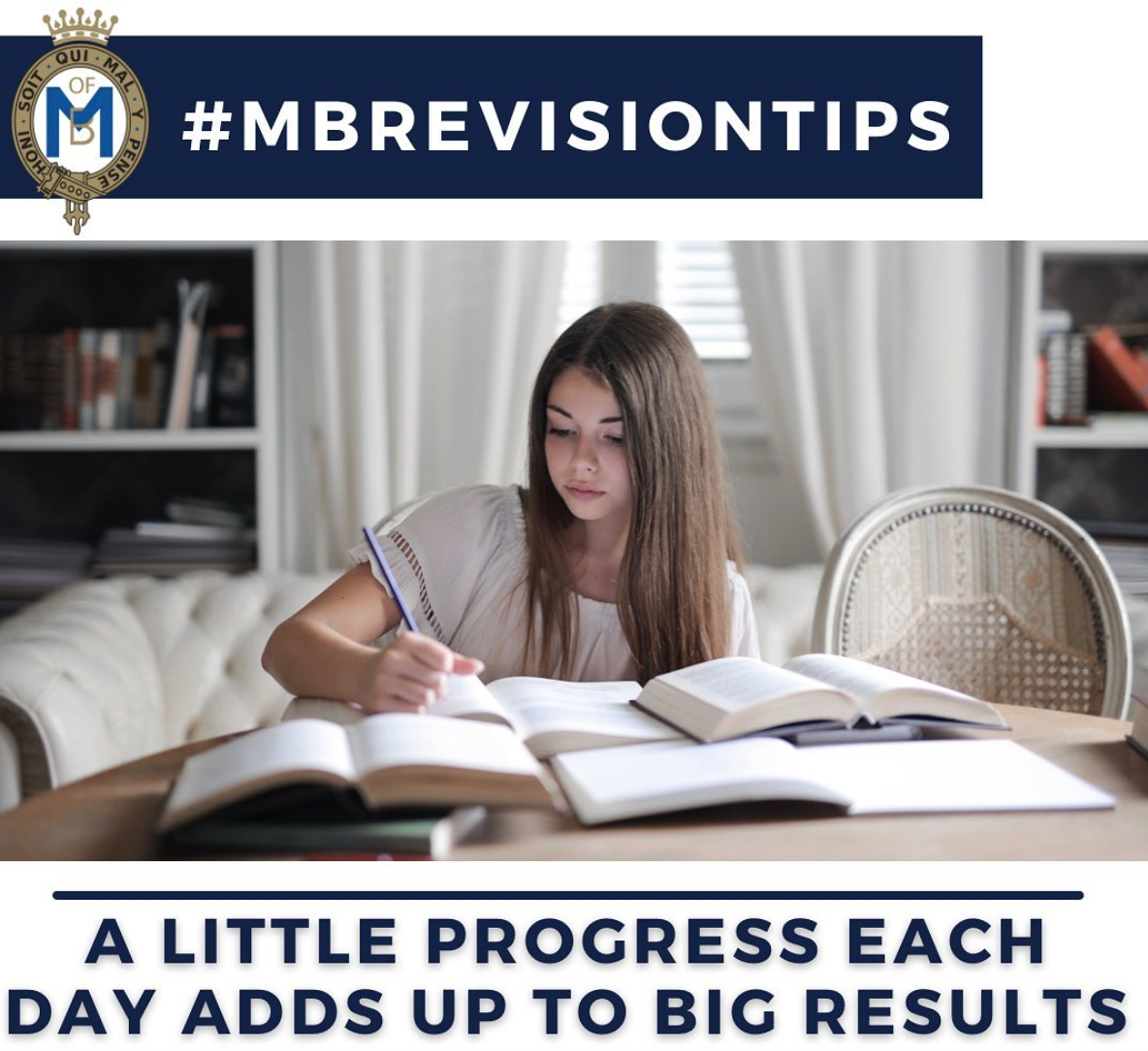
M O T I V A T I O N
It is difficult to stay motivated when studying, here are our top tips to help keep your motivation high…
💪 Create a study schedule. Developing a routine helps you keep going - we are creatures of habit!
💪 Focus on your progress so far, not what you don’t know. Lots of small steps soon adds up.
💪 Get enough sleep (at least 8 hours). You feel more motivated when you have a rested mind and body.
💪 Set attainable goals. Set a time goal or an amount to get done that challenges you but is also achievable.
🏆Don’t forget to reward yourself when you reach your goals.
REMEMBER: hard work little and often pays off with big results - keep going! 💪💪
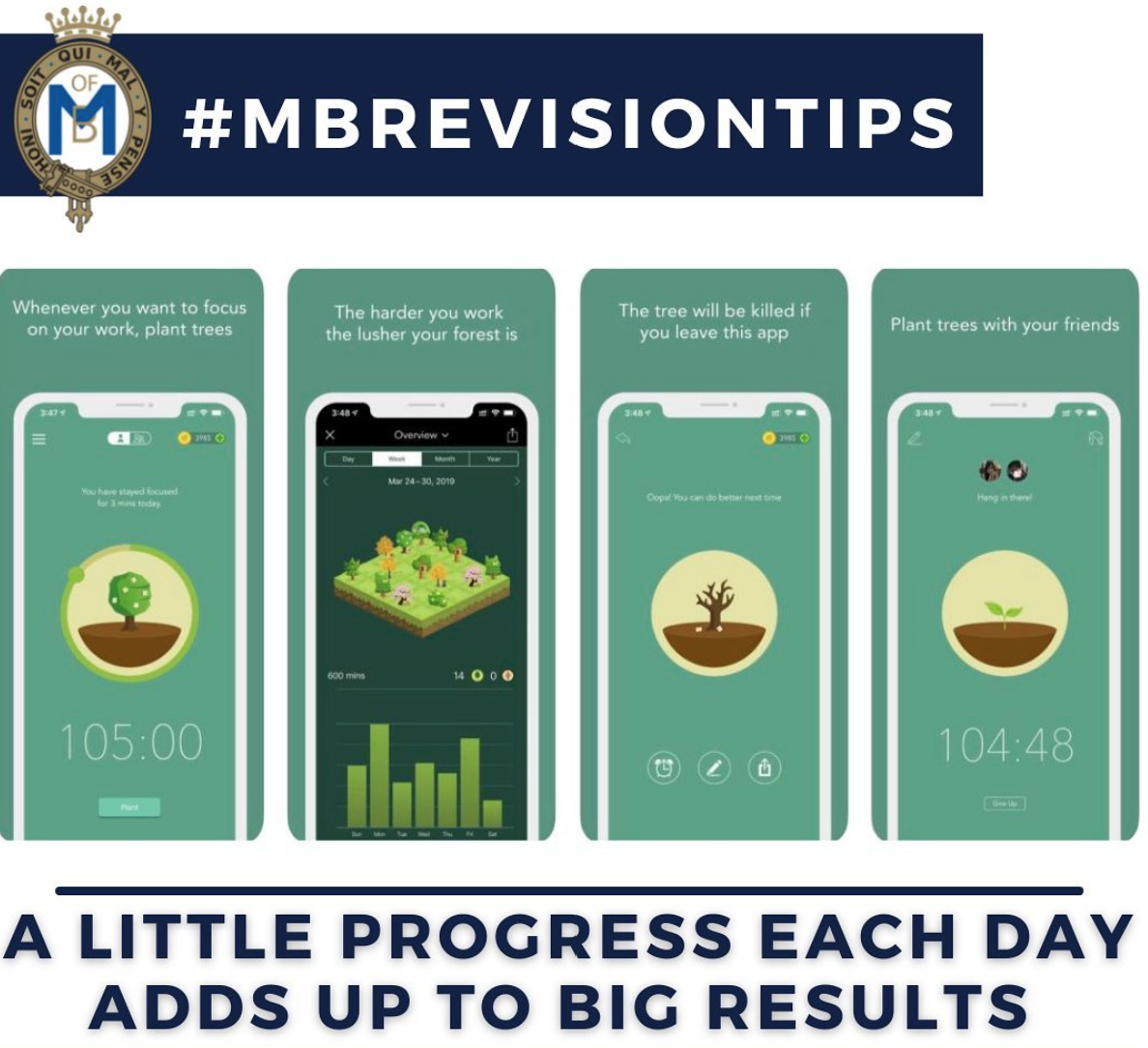
F O C U S
Is your phone a distraction when revising? Forest is a great, fairly cheap app that helps you focus and improve your productivity. You set a simple timer to grow a tree and build a forest… if you leave before the timer is up (to go scrolling) your tree withers.
There are other similar apps that achieve the same thing for free: Tide (an app that focuses on productivity and wellness), Freedom (an app that blocks apps and websites you find distracting for a set time to help you focus) and Habitica (an app that tracks and helps you improve your habits to keep you motivated and achieve your goals).
Technology can be a distraction when revising - why not take advantage of technology to improve your motivation and focus instead!
Flipd is a free app that allows you to set a timer on your phone so that you cannot access it for that set time… goodbye phone distraction!
The app tracks the study time you clock up so you can see how long your are revising for each day/week/month. It is a great tool to limit distractions and improve your study habits.
